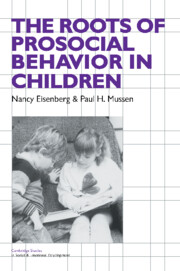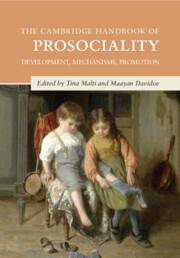The Roots of Prosocial Behavior in Children
What kinds of childbearing practices foster the development of helping, sharing, and other prosocial behaviours? What roles do biology and culture play in the development of prosocial behaviour? In this book, Nancy Eisenberg and Paul Mussen review and summarize scholarly research that has been devoted to the development of prosocial behaviour in children, and examine the variety of influences that contribute to children's prosocial development, including the media, parents, peers, biology, culture, personal characteristics, as well as situational determinants. The authors argue that prosocial behaviour can be learned and is modifiable, and they suggest ways that parents, teachers, and other can enhance prosocial development. In addition, the authors attempt to communicate the advances in the study of prosocial development that have taken place over the last decade. The book highlights some questions that have not yet been addressed adequately by researchers, and suggests areas for future work.
Product details
April 2011Adobe eBook Reader
9780511872174
0 pages
0kg
This ISBN is for an eBook version which is distributed on our behalf by a third party.
Table of Contents
- Preface
- 1. Introduction
- 2. Methodological and theoretical considerations in the study of prosocial behavior
- 3. Biology and prosocial behavior
- 4. Culture and prosocial behavior
- 5. 'Person' variables and prosocial behavior
- 6. Socialization in the family
- 7. Socialization by agents outside the family
- 8. Cognition, role taking, interpersonal prolem solving, and moral judgment
- 9. Emotional factors in prosocial behavior
- 10. Situational determinants
- 11. Conclusions
- References
- Name index
- Subject index.





